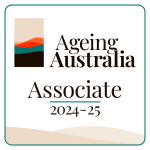Overseas RNs in Australia: A Guide to Healthcare Success

The Benefits of Hiring Locally-Based Overseas Registered Nurses in Australia
In recent years, Australia has faced a growing demand for healthcare professionals, particularly registered nurses (RNs). As the country’s population ages and healthcare facilities expand, the need for skilled nursing staff has become increasingly urgent. One solution that has gained traction is hiring locally-based overseas RNs. This approach not only addresses workforce shortages but also brings a wealth of benefits to the Australian healthcare system.
Background and Context
Historical Context of Nursing Shortages in Australia
Australia has long grappled with nursing shortages, a challenge that has roots in the country’s vast geography and growing healthcare needs. Historically, rural and remote areas have been particularly affected, struggling to attract and retain qualified nursing staff. The shortage has been exacerbated by an aging nursing workforce, with many experienced nurses approaching retirement age.
Current Relevance: Aging Population and Expanding Healthcare Facilities
Today, the nursing shortage in Australia is more critical than ever. The country’s aging population is placing increased demands on the healthcare system. According to the Australian Institute of Health and Welfare, the proportion of Australians aged 65 and over is projected to increase from 15% in 2017 to 22% by 2057. This demographic shift is driving the expansion of healthcare facilities and services, further intensifying the need for qualified nursing professionals.
Global Nursing Shortage and Its Impact on Australia
The nursing shortage is not unique to Australia; it’s a global phenomenon. The World Health Organization (WHO) estimates that there will be a global shortage of 9 million nurses and midwives by 2030. This global shortage impacts Australia in two ways: it increases competition for skilled nurses internationally and underscores the importance of developing sustainable solutions to attract and retain nursing talent.
Key Benefits of Hiring Locally-Based Overseas RNs
Addressing Workforce Shortages
The most immediate benefit of hiring overseas RNs is addressing critical workforce shortages. These skilled professionals can fill gaps in various specialties and healthcare settings, ensuring continuity of care and reducing the strain on existing staff. By complementing the local workforce, overseas RNs help maintain staffing levels necessary for safe and effective patient care.
Enhancing Cultural Diversity in Healthcare
Australia is a multicultural society, and its patient population reflects this diversity. Overseas RNs bring with them a wealth of cultural knowledge and language skills that can significantly enhance patient care. This diversity in the nursing workforce can lead to improved communication with patients from various backgrounds, fostering a more inclusive healthcare environment.
Economic Benefits and Return on Investment
Investing in the nursing workforce, including overseas RNs, has significant economic benefits. According to recent expert opinions, “For every $1 invested in better health brings a return of between $2 and $4” The economic power of care – ICN. This return on investment is realized through improved health outcomes, increased productivity, and reduced healthcare costs over time.
Maintaining High-Quality Healthcare Services
Overseas RNs often bring unique perspectives and experiences from their home countries’ healthcare systems. This diversity of experience can contribute to innovation in patient care practices and help maintain Australia’s high standards of healthcare. Many overseas RNs have worked in challenging environments, developing resilience and problem-solving skills that are invaluable in any healthcare setting.
Latest Statistics and Trends
Current Demand for Nurses in Australia
The demand for nurses in Australia continues to grow. As of 2024, nursing remains on the country’s skilled occupation list, indicating a persistent shortage. Healthcare Australia reports that the country will need an additional 123,000 nurses by 2030 to meet growing demand.
Global Nursing Shortage Statistics
The global nursing shortage is equally concerning. The International Council of Nurses (ICN) reports that “30.6 million nurses are needed to achieve effective Universal Health Coverage” The economic power of care – ICN. This global shortage underscores the importance of international recruitment strategies like those employed in Australia.
Salary Ranges for RNs in Australia
Competitive salaries are a key factor in attracting overseas RNs. In Australia, registered nurses can expect to earn “between AUD 65,000 and AUD 90,000 annually” Migrate to Australia As a Registered Nurse – CanApprove. These salaries are often supplemented by additional benefits and allowances, making Australia an attractive destination for international nursing professionals.
Attracting Overseas RNs to Australia
Competitive Salaries and Job Security
Australia offers competitive salaries for RNs, which is a significant draw for overseas professionals. The combination of attractive remuneration and the high demand for nurses provides a strong sense of job security. This financial stability is often a key factor in the decision-making process for nurses considering international relocation.
High Quality of Life and Work-Life Balance
Australia is renowned for its high quality of life, offering a balance between professional opportunities and personal well-being. The country’s healthcare system emphasizes work-life balance, with fair working hours and generous leave entitlements. This aspect of Australian work culture is particularly appealing to overseas RNs seeking a fulfilling career without sacrificing personal time.
Comprehensive Relocation Packages
Many Australian healthcare providers offer extensive relocation packages to attract overseas RNs. A recent case study highlighted that “Australian health services offering expansive relocation packages” Relocation Packages for Nurses – What Countries Will Pay You to Move There? – Nursing Jobs Fair often include visa sponsorship, relocation bonuses, salary packaging, and environmental allowances. These packages can significantly ease the financial and logistical burdens of international relocation.
Global Recognition of Australian Nursing Qualifications
Australian nursing qualifications are highly regarded worldwide. This global recognition offers overseas RNs the opportunity to advance their careers internationally while working in Australia. The prospect of gaining valuable experience in a world-class healthcare system is a strong incentive for many international nurses.
Integration and Support for Overseas RNs
Cultural Adaptation Programs
Recognizing the challenges of cultural transition, many Australian healthcare institutions offer comprehensive cultural adaptation programs. These programs help overseas RNs understand Australian healthcare practices, communication styles, and cultural nuances. Such support is crucial in ensuring a smooth integration into the Australian healthcare system.
Training and Mentoring Initiatives
To support the professional development of overseas RNs, many healthcare providers implement robust training and mentoring initiatives. These programs pair new international nurses with experienced local staff, facilitating knowledge transfer and helping overseas RNs adapt to Australian clinical practices and protocols.
Supportive Work Environments
Australian healthcare institutions are increasingly focusing on creating supportive work environments for all staff, including overseas RNs. This includes fostering inclusive workplace cultures, providing emotional support, and ensuring equal opportunities for career advancement. Such supportive environments are crucial for the retention and long-term success of overseas nursing professionals.
Technology Integration and Upskilling Opportunities
Australia’s healthcare system is at the forefront of technological advancement. Overseas RNs have the opportunity to work with state-of-the-art medical technologies and digital health systems. Many institutions offer upskilling programs to ensure all nurses, including those from overseas, are proficient in the latest healthcare technologies and practices.
Registration and Visa Process
AHPRA Registration Requirements
All nurses working in Australia must be registered with the Australian Health Practitioner Regulation Agency (AHPRA). For overseas RNs, this process involves demonstrating that their qualifications and experience meet Australian standards. AHPRA assesses each application individually, considering factors such as education, clinical experience, and English language proficiency.
Outcome-Based Assessment (OBA) and Bridging Programs
AHPRA uses an Outcome-Based Assessment (OBA) to evaluate the competencies of overseas-trained nurses. This assessment may lead to full registration or the requirement to complete a bridging program. Bridging programs are designed to address any gaps in knowledge or skills, ensuring that overseas RNs are fully prepared to practice in the Australian healthcare context.
Visa Options for Overseas RNs
There are several visa options available for overseas RNs looking to work in Australia. The most common include:
- Temporary Skill Shortage (TSS) visa (subclass 482)
- Skilled Independent visa (subclass 189)
- Skilled Nominated visa (subclass 190)
Each visa has specific requirements and eligibility criteria. Many healthcare employers assist with visa sponsorship as part of their recruitment packages.
Recent Developments in Streamlining the Process
In response to the ongoing nursing shortage, Australian authorities have been working to streamline the registration and visa processes for overseas RNs. Recent developments include faster processing times for certain visa categories and the introduction of more flexible assessment pathways for international nursing qualifications.
Comparison with Other Countries
Australia vs. New Zealand
Both Australia and New Zealand offer attractive opportunities for overseas RNs. Key differences include:
- Reciprocal Recognition: Australia and New Zealand have a mutual recognition agreement for nursing qualifications, making it easier for nurses to practice in either country.
- Salary: While both countries offer competitive salaries, Australia generally has higher pay rates for nurses.
- Work Environment: Both countries are known for excellent work-life balance, but Australia offers a wider range of specialized roles due to its larger healthcare system.
Australia vs. Dubai
Comparing Australia to Dubai reveals significant differences:
- Cultural Context: Australia offers a Western cultural context, while Dubai provides a unique Middle Eastern experience.
- Work Conditions: Australia is known for its strong labor laws and work-life balance, whereas Dubai may offer tax-free salaries but potentially longer working hours.
- Career Development: Australia provides more diverse career progression opportunities and globally recognized qualifications.
Australia vs. Other Countries
When compared to other popular destinations for overseas RNs:
- Job Security: Australia’s ongoing demand for nurses offers greater long-term job security compared to many other countries.
- Professional Development: Australia’s healthcare system provides extensive opportunities for specialization and advanced practice roles.
- Quality of Life: Australia consistently ranks high in global quality of life indices, offering a combination of economic opportunity and lifestyle benefits that many other countries struggle to match.
Current Challenges and Debates
Visa Process Complications
Despite efforts to streamline processes, visa applications for overseas RNs can still be complex and time-consuming. Challenges include:
- Long processing times
- Changing eligibility criteria
- High costs associated with visa applications and relocations
These complications can deter some qualified nurses from pursuing opportunities in Australia.
Cultural Sensitivity in Patient Care
As Australia’s patient population becomes increasingly diverse, there’s an ongoing debate about ensuring cultural sensitivity in healthcare delivery. Overseas RNs bring valuable diverse perspectives but may also face challenges in adapting to Australian cultural norms and communication styles in healthcare settings.
Balancing Local and International Workforce Development
There’s a continuous debate about balancing the recruitment of overseas RNs with the development of the local nursing workforce. Key points of discussion include:
- Ensuring opportunities for local nursing graduates
- Investing in training and retention programs for the existing workforce
- Addressing structural issues contributing to nursing shortages
How To Succeed as an Overseas RN in Australia
Research and Prepare for the Australian Healthcare System
Before arrival, overseas RNs should:
- Study the structure of the Australian healthcare system
- Familiarize themselves with common medical terminology used in Australia
- Understand the role of Medicare and private health insurance
Network with Other International Nurses
Building a professional network can be invaluable. Strategies include:
- Joining online forums and social media groups for international nurses in Australia
- Attending networking events organized by professional nursing associations
- Participating in orientation programs offered by employers
Embrace Continuous Learning and Professional Development
To thrive in the Australian healthcare system:
- Stay updated on the latest nursing practices and technologies
- Pursue additional certifications or specializations
- Attend workshops and conferences to expand knowledge and skills
Seek Mentorship Opportunities
Mentorship can significantly aid in professional growth:
- Look for formal mentorship programs within your healthcare institution
- Seek guidance from experienced colleagues
- Consider cross-cultural mentorship to better understand Australian workplace norms
Maintain Work-Life Balance and Prioritize Self-Care
Adapting to a new country and healthcare system can be challenging:
- Utilize available leave entitlements for rest and rejuvenation
- Engage in activities outside of work to maintain a balanced lifestyle
- Seek support when needed, including accessing employee assistance programs
FAQ Section
What specializations are in high demand for overseas RNs in Australia?
Currently, Australia has a high demand for RNs in several specializations, including:
- Critical Care and Emergency
- Aged Care
- Mental Health
- Midwifery
- Perioperative (Operating Theatre) Nursing
The exact demand can vary by region and may change over time based on population needs and healthcare trends.
How can overseas RNs improve their chances of securing a position in Australia?
To enhance their prospects, overseas RNs should:
- Ensure their qualifications meet AHPRA standards
- Gain experience in high-demand specialties
- Improve English language proficiency (aim for high scores in language tests like IELTS or OET)
- Network with Australian healthcare providers and recruitment agencies
- Stay informed about visa options and requirements
What are the language requirements for overseas RNs in Australia?
Overseas RNs must demonstrate English language proficiency. This can be done through:
- IELTS (Academic): Minimum score of 7 in each component
- OET (Occupational English Test): Minimum grade of B in each component
- Other accepted tests include PTE Academic and TOEFL iBT
AHPRA provides detailed information on accepted tests and required scores.
Are there opportunities for overseas RNs to work in rural or remote areas of Australia?
Yes, there are significant opportunities in rural and remote areas. In fact, these regions often have a higher demand for nurses. Benefits of working in these areas may include:
- Higher salaries and additional allowances
- Opportunities for diverse clinical experiences
- Potential for faster career progression
- Eligibility for certain visa pathways that prioritize rural placements
How does the cost of living in Australia compare to other popular destinations for overseas RNs?
The cost of living in Australia can be relatively high, especially in major cities like Sydney and Melbourne. However, this is often offset by higher salaries and better working conditions. Key points to consider:
- Housing costs can be significant, particularly in urban areas
- Healthcare and education systems are of high quality and accessible
- Food and utilities costs are generally comparable to other developed countries
- Public transportation is well-developed in major cities
Compared to countries like the UK or Canada, Australia often offers higher nursing salaries relative to living costs, potentially allowing for a higher standard of living.
Challenges and Solutions
Challenge: Cultural differences in healthcare practices
Solution: Comprehensive cultural competency training
- Implement mandatory cultural awareness programs for all staff
- Provide ongoing support and resources for understanding diverse patient needs
- Encourage open dialogue about cultural differences in healthcare approaches
Challenge: Homesickness and adjustment difficulties
Solution: Support networks and mentorship programs
- Establish buddy systems pairing new overseas RNs with local staff
- Create social groups and events for international healthcare workers
- Offer counseling services specifically tailored to the needs of overseas professionals
Challenge: Recognition of prior experience and qualifications
Solution: Bridging programs and skills assessment initiatives
- Develop tailored bridging courses to address specific gaps in knowledge or skills
- Implement competency-based assessments to recognize prior learning and experience
- Collaborate with international nursing bodies to streamline qualification recognition processes
Ethical Considerations and Best Practices
Ensuring Fair Treatment and Equal Opportunities for Overseas RNs
It’s crucial to maintain ethical standards in the recruitment and employment of overseas RNs:
- Implement transparent hiring processes that evaluate all candidates based on merit
- Ensure equal pay and benefits for equivalent roles, regardless of nationality
- Provide clear pathways for career progression and professional development
Balancing International Recruitment with Local Workforce Development
While overseas RNs play a vital role, it’s important to maintain a balance:
- Invest in programs to attract and retain local nursing students
- Offer retraining opportunities for former nurses looking to return to the profession
- Develop strategies to address underlying causes of nursing shortages, such as burnout and workplace conditions
Promoting Cultural Sensitivity and Diversity in Healthcare Settings
Creating an inclusive environment benefits both staff and patients:
- Implement diversity and inclusion training for all healthcare staff
- Celebrate cultural diversity through workplace events and initiatives
- Ensure policies and procedures are culturally sensitive and inclusive
Success Stories and Testimonials
Case Study: Successful Integration of Overseas RNs in Rural Healthcare Settings
In 2023, a regional hospital in Queensland implemented a comprehensive integration program for overseas RNs. The program included:
- A three-month orientation period with gradual increase in responsibilities
- Pairing with local mentors familiar with rural healthcare challenges
- Cultural immersion activities within the local community
Results:
- 95% retention rate of overseas RNs after 18 months
- Improved patient satisfaction scores, particularly in cross-cultural communication
- Enhanced skill mix within the nursing team, leading to more comprehensive care delivery
Testimonial
“Being an overseas certified nurse working in Australia is a fulfilling and demanding task. Although the procedure calls for tenacity, the chances for employment stability, professional development, and first-rate living make it well worth it.”
Tools, Equipment, and Resources
Online Platforms for Job Searching and Networking
- LinkedIn: Professional networking platform with job listings and industry insights
- Seek.com.au: Australia’s largest job search website
- HealthTimes Jobs: Specialized job board for healthcare professionals in Australia
Cultural Adaptation Resources and Language Support Tools
- Australian Way: Online course covering Australian culture and workplace norms
- Nursing and Midwifery Board of Australia (NMBA) Resources: Guidelines on professional standards and codes of conduct
- Duolingo English Test: Online English proficiency test accepted by many Australian institutions
Professional Development Courses and Certification Programs
- Australian College of Nursing: Offers various continuing professional development courses
- University of Tasmania’s Graduate Certificate in Nursing: Specialization courses for registered nurses
- Royal Australian College of General Practitioners (RACGP): Training programs for nurses working in general practice
Conclusion
The recruitment of locally-based overseas RNs presents a multifaceted solution to Australia’s nursing shortage. This approach not only addresses immediate workforce needs but also enriches the healthcare system with diverse perspectives and experiences. The benefits are far-reaching, from enhancing cultural competency in patient care to stimulating economic growth through skilled migration.
As we look to the future, the role of international nurses in Australia’s healthcare landscape is likely to grow even more significant. The ongoing global nursing shortage, coupled with Australia’s aging population and expanding healthcare sector, suggests a continued need for skilled overseas RNs.
For potential overseas RNs considering Australia, the opportunities are abundant. The country offers not just career prospects, but a chance to be part of a world-class healthcare system known for its innovation and quality of care. While challenges exist, particularly in the areas of visa processing and cultural adaptation, the support systems and resources available for international nurses in Australia are continually improving.
The success of this approach relies on ongoing efforts to streamline registration processes, provide comprehensive support for cultural integration, and ensure fair and ethical treatment of all nursing professionals. As Australia continues to refine its strategies for attracting and retaining overseas RNs, it sets a global standard for international healthcare workforce management.
For nurses around the world looking for new challenges and opportunities, Australia stands out as a destination that offers professional growth, personal fulfillment, and a high quality of life. The journey of becoming an RN in Australia may be demanding, but for many, it proves to be a rewarding and life-changing experience.
As we move forward, the collaboration between local and international nursing professionals will be key to addressing healthcare challenges and maintaining Australia’s position as a leader in global healthcare. The future of nursing in Australia is diverse, dynamic, and full of potential, with overseas RNs playing a crucial role in shaping that future.
Additional Resources
- Australian Health Practitioner Regulation Agency (AHPRA) website
Official resource for registration requirements and processes
- Department of Home Affairs – Visa information
Comprehensive information on visa options and requirements
- Australian Nursing and Midwifery Federation resources
Professional support and advocacy for nurses in Australia
- State-specific health department websites
Provide local healthcare information and job opportunities:
| Aspect | Australia | New Zealand | Dubai | Canada |
|---|---|---|---|---|
| Average RN Salary | AUD 65,000 – 90,000 | NZD 54,000 – 80,000 | AED 84,000 – 180,000 | CAD 75,000 – 95,000 |
| Work-Life Balance | Excellent | Excellent | Good | Very Good |
| Career Progression | Extensive opportunities | Good opportunities | Limited opportunities | Good opportunities |
| Cultural Diversity | High | Moderate | Very High | High |
| Cost of Living | High | High | Moderate (tax-free) | High |
| Healthcare System Quality | World-class | High quality | Developing rapidly | World-class |
| Visa Process | Moderately complex | Relatively straightforward | Employer-dependent | Points-based system |

How to Become an RN in Australia as an Overseas Nurse
Step 1: Research and Prepare
Study the Australian healthcare system, check AHPRA registration requirements, and assess your English language proficiency.
Step 2: Qualify for Registration
Complete AHPRA assessment, undertake Outcome-Based Assessment (OBA) if required, and complete any necessary bridging programs.
Step 3: Secure Employment
Search for job opportunities, apply for positions, and undergo the interview process.
Step 4: Apply for Visa
Determine the appropriate visa type, gather necessary documents, and submit your visa application.
Step 5: Relocate to Australia
Arrange accommodation, set up banking and healthcare, and familiarize yourself with the local area.
Step 6: Orientation and Integration
Complete workplace orientation, engage in cultural adaptation programs, and begin work as an RN in Australia.
Step 7: Continuous Professional Development
Participate in ongoing training, seek specialization opportunities, and maintain your AHPRA registration.









